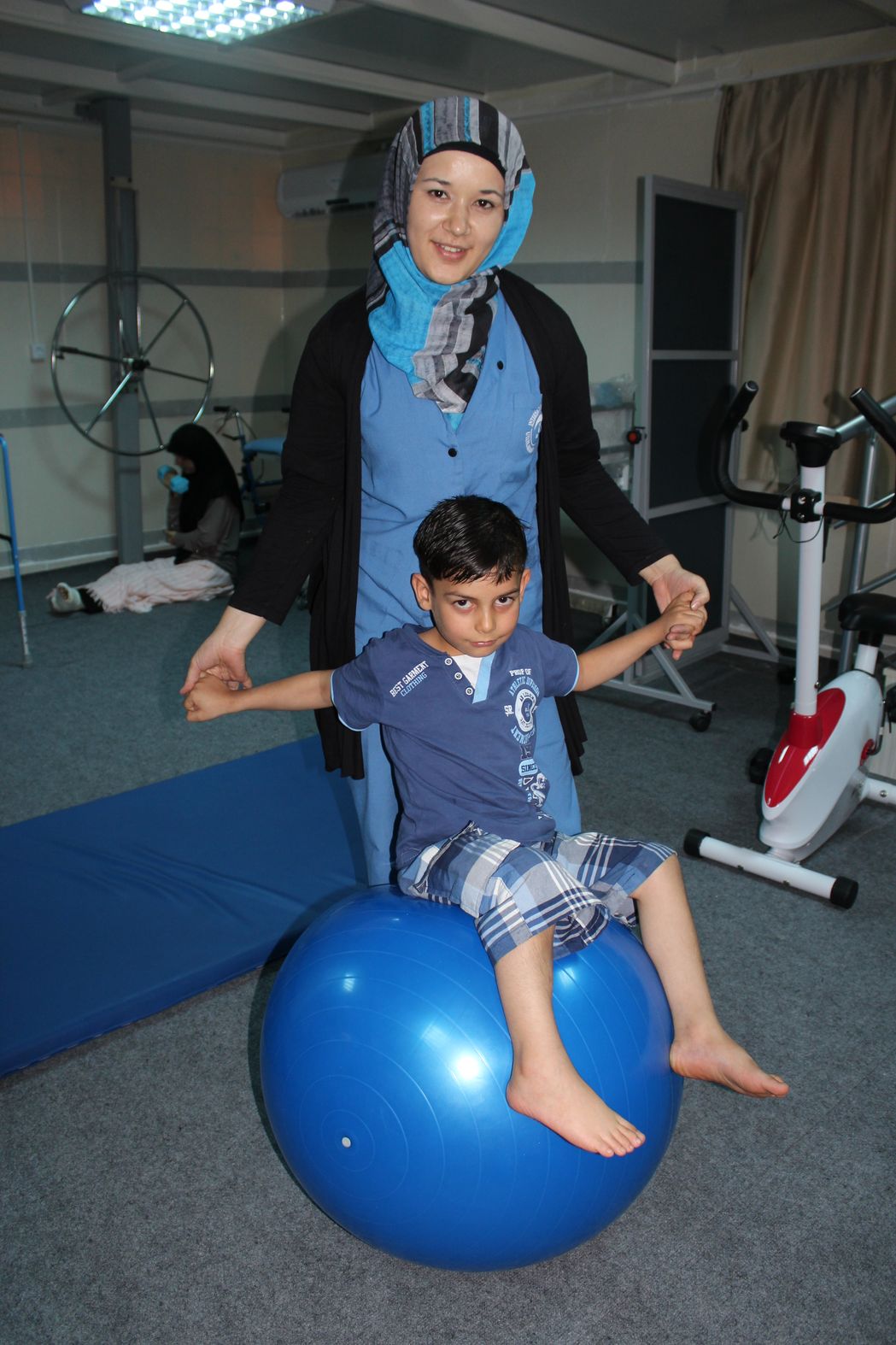Habib’s story: Learning to walk again
Full of energy, little Habib hits the pedals on a stationary bike in the new therapy room of Malteser International’s rehabillitation hospital in Kilis, Türkiye. The six-year-old fled with his mother and the rest of their family from the Syrian city of Aleppo, and now live in a tent near the Syrian-Turkish border. Habib was injured by shrapnel from a bomb that was dropped in Aleppo on 6 April. He was taken to the hospital in Aleppo, where he underwent surgery, without success. Two days later, he was brought to the state hospital in Kilis for a second surgery. “After the surgery, the state hospital referred Habib to us, and we took care of him until he returned to Syria,” tells Zilal, a physical therapist at the rehabillitation hospital. “But after a while, his mother noticed that his situation was not improving, so she brought him back.”
“At first, the doctors wanted to send Habib for another surgery to Kilis State Hospital,” Zilal continues. “But we physical therapists were confident that we would be able to improve his situation through therapy alone, without yet another surgery.”
With its expansion in July, the rehabilitation hospital gained a large room for physiotherapy in which patients have enough space and the necessary equipment to train and rehabilitate, together with Zilal and her colleague, Mostafa. Like most of the staff at the rehabilitation hospital, both physical therapists are also Syrian refugees. Both received special training at the rehabilitation hospital in dealing particularly with war injuries.
Zilal and Mostafa care for an average of 15 patients a day. The patients are not only referred to them by the local hospital, but also come from far away. Most of them suffer from war injuries, mainly caused by shrapnel and gun wounds: paraplegia, amputations, brain injuries, burns, broken bones, vascular lesions, and ribcage injuries.
“Unfortunately, we often also have to treat children who have lost an arm or a leg, or have become paraplegic,” Zilal says. “If we’re not able to completely heal a patient, we always try to restore a maximum of mobility and independence, to help increase their self-esteem.” Parallel to the physical therapy, psychologists at the community center run by Malteser International also help increase the patients’ mental well-being by helping them cope with life-altering injuries and disabilities.
Luckily, Habib’s daily therapy routine was successful, and he does not need to undergo a third surgery. “When I first met Habib, he could not walk without a walker or support from other people,” Zilal says. “Now, he can walk by himself.” As one of Habib’s legs is shorter than the other, he is now waiting for orthopedic shoes before he can leave the hospital and return to Syria with his family.









